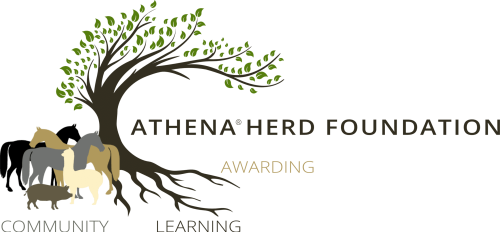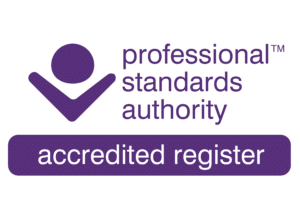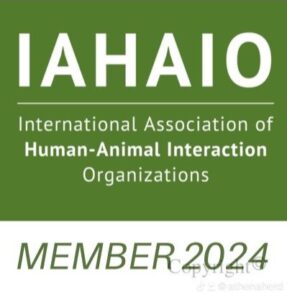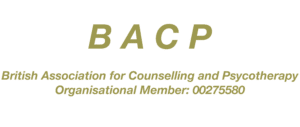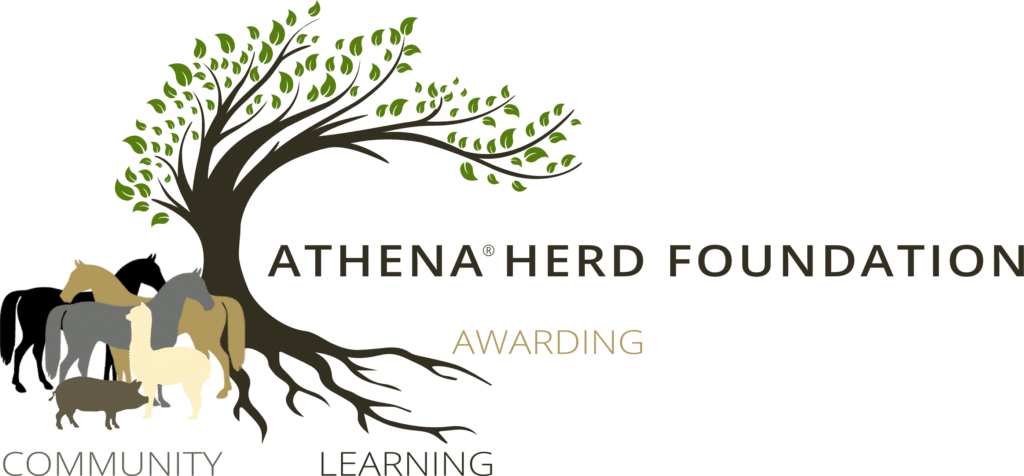
Athena Herd Foundation Anti-Bullying and Harassment Policy
Athena Herd Foundation has a zero tolerance anti-bullying and anti-harassment policy.
Athena Herd Foundation aims to provide an environment in which the dignity of the individual is respected and in which all individuals feel safe and can work effectively, confidently, and competently.
Athena Herd Foundation will take steps as are necessary to meet this aim.
This policy is designed to ensure that all complaints of bullying and/or harassment are dealt with objectively, quickly, sensitively and confidentially.
Practitioners have a responsibility in respect of such matters and will investigate all complaints of inappropriate or improper conduct, whether they have occurred on the premises, outside the premises or in a virtual arena.
This policy covers all incidents taking place both on the premises or between members of Athena Herd Foundation at other venues as well as allegations raised against practitioner registrants on the Accredited Practitioner Register™.
Athena Herd Foundation will investigate any and all allegations of bullying and/or harassment, whether it has been raised formally or informally.
Athena Herd Foundation intends to provide a safe productive working environment free from any bullying, harassment, intimidation and/or victimisation on the basis of race, gender, ethnic or national origin, sexual orientation or identity, marital status or relationship status, religion or belief, age, trade union status, trade union membership, disability, offending background or any other personal characteristic.
Bullying and/or harassment is defined as any conduct which is:
- unwanted by the recipient;
- considered objectionable by the recipient;
- the cause of humiliation, offence or distress (or other detrimental effect).
The key to distinguishing what does or does not constitute bullying and/or harassment is that the behaviour is unwanted by the person to whom it is directed. It is the impact of the conduct not the intent of the perpetrator that is the determinant. Bullying and/or harassment may be an isolated occurrence or repetitive; and it may occur against one or more individuals. Bullying and/or harassment may be, but is not limited to:
- physical contact: ranging from touching to physical assault, gestures, intimidation, aggressive behavior;
- verbal: unwelcome remarks, suggestions and propositions, malicious gossip and rumour spreading, jokes and banter, offensive language, tone of voice;
- non-verbal: offensive literature or pictures, graffiti and computer imagery, isolation or non-co-operation, and exclusion or isolation from social activities, use of social media, removal or moving another person’s belongings, invasion of personal space;
- bullying: persistent, offensive, abusive, intimidating or insulting behaviour, abuse of power or unfair sanctions which makes the recipient feel upset, threatened, humiliated or vulnerable, deliberately undermining a competent employee by unreasonable workloads or frequent unjustified criticism.
Everyone at the Athena Herd Foundation carries a responsibility for their own behaviour. However, the behaviour of people can vary on a daily basis. People who are generally civil can at times appear impatient or pre-occupied. This policy is not intended to deal with occasional lapses in good manners unless a pattern of behaviour emerges that is perceived to be offensive or intimidatory.
Anyone who wishes to make a complaint about bullying and harassment should first discuss this with the Athena Herd Foundation If this is inappropriate or if the matter has not been resolved, please refer to the Athena Herd Foundation Internal Compliment and Complaints Policy or Disciplinary Rules and Disciplinary Procedure which are contained in our Staff Handbook.
Where a complaint of bullying and/or harassment is received, whether formally or informally, prompt action will be taken to investigate the case.
If bullying and/or harassment is established, corrective action will be taken.
All matters relating to any part of this procedure will be treated in strict confidence. Any breach of this confidentiality may render those responsible liable for disciplinary action or other action. However, the procedure requires that the accused be made aware of the allegations against them and the name(s) of those making the allegations, along with witnesses.
No individual will be victimised for making a complaint of bullying and/or harassment and the Athena Herd Foundation shall not threaten either explicitly or implicitly that an individual’s complaint of bullying and/or harassment will be used as the basis for decision making. Such conduct will be treated as a serious disciplinary offence.
Athena Herd Foundation is required to act upon any complaint of bullying and/or harassment, whether formal or informal. Failure by an individual to do so will be considered misconduct, which if proven, will result in disciplinary action. Details of any complaints must be recorded in compliance with legislation e.g. The Race Relations (Amendment) Act 2000.
Athena Herd Foundation recognises the distress and anxiety that such allegations can cause to both the complainant and the alleged harasser. Support will be available to both parties. Enquiries into complaints will be progressed promptly and objectively, with sensitivity and due respect for the rights of both the complainant and the alleged perpetrator. Athena Herd Foundation shall periodically review this policy and procedure giving due consideration to legislative changes.
Informal Resolution Procedure
Very often people are not aware that their behaviour is unwelcome and misunderstood and an informal discussion can lead to greater understanding and agreement that the behaviour will cease. Complainants are therefore encouraged to try, if they feel able to do so, to resolve the problem informally by making it clear to the alleged harasser that his/her actions are unwanted and should not be repeated. This may be done verbally or in writing, in which case the complainant should keep a copy of the documentation, and where possible, the times and dates of incidents should be recorded. However, there is an understanding that such a discussion would be very difficult for many people and may cause further anxiety and distress, so if the complainant feels unable to have the informal discussion with the alleged harasser, it is reasonable for them to discuss the matter with Athena Herd Foundation, as appropriate. This person can be asked to speak to the alleged harasser on the complainants’ behalf. It is also noted that the alleged harasser may not realise their behaviour is impacting negatively on someone and may need support throughout the process of the discussion.
An individual who is made aware that their behaviour is unacceptable should:
- listen carefully to the complaints and the particular concerns raised;
- respect the other person’s point of view – they have a right to work in an environment free from bullying/harassment/intimidation;
- remember that it is the other person’s reaction/perception to the conduct and behaviour that is important;
- agree the aspects of their behaviour that will change;
- review their general conduct and behaviour.
As both alleged harasser and complainant could be vulnerable, it is possible for either to bring a representative to meetings, even at the informal stage, to offer support through the process.
Formal Resolution Procedure
If the alleged harassment continues, the complainant feels unable or unwilling to deal with the matter informally, or the allegation is so serious as to prevent use of the informal procedure, the complaint should then be raised formally with the Athena Herd Foundation.
When dealing with a complaint of bullying and/or harassment under the Formal Resolution Procedure, the individual dealing with the incident should:
- take full details of the incident in writing from the complainant and/or their representative, as appropriate;
- take full details from any witnesses/other complainants who come forward and may have witnessed the alleged behaviour;
- inform the alleged harasser of the complaints against him/her, advise the alleged harasser to seek representation and invite him/her to a meeting in order that they can comment on the allegations against them;
- keep all parties informed of expected timescales;
- inform all parties in writing of any outcome and any action which may be required if the allegations and the working situation warrant it, the alleged harasser may be suspended during the investigation period (in accordance with the disciplinary procedure).
In the case of the alleged harasser not being a representative of Athena Herd Foundation, should there be a case to answer against the alleged harasser, the investigation will be undertaken by Athena Herd Foundation, as appropriate. If neither party is appropriate, due to the allegations being against one of them, another independent mediator can be chosen to undertake the investigation.
Possible outcomes of the procedure, should the complaint be upheld, depending on the severity of the incident, can include actions through the Disciplinary Procedure (for a member of the Athena Herd Foundation), Training, Removal from duties, a written apology.
Should the alleged harasser be a member of the Athena Herd Foundation, and there is felt to be a case to answer against them, the matter will be referred to the Disciplinary Procedure. The normal disciplinary procedure for misconduct or gross misconduct should then be followed. The outcomes of a disciplinary procedure can be:
- dismissal;
- formal Warning (verbal or written);
- requirement to attend training;
- Removal from certain duties.
With any allegation, the need for a thorough and objective investigation is paramount. Consequently, if through the course of an investigation evidence supports that the allegation has been made frivolously, maliciously or for personal gain, then the individual making the complaint will be either (for paid staff) taken through the Disciplinary Procedure or (for volunteers or contractors) dealt with through the procedures above as an alleged harasser.
Handling of allegations under the Accredited Practitioner Register
Where allegations are received in relation to the activities of a registrant on the Accredited Practitioner Register™ will be handled by the Professional Conduct Review Committee. Depending on the outcomes of these investigations practitioners will be disciplined in line with the Athena Herd Foundation Sanctions Policy and where appropriate be made public through the Professional Conduct Notices page and the guiding policies thereof.
Where a complaint is substantiated or partially substantiated but does not lead to disciplinary action (for staff) or other sanctions (for volunteers or contractors), a letter confirming the actions taken (including meetings which have happened to deal with the incident) will be retained, with a copy given to the alleged harasser.
Where the matter proceeds to disciplinary or another policy and procedure, the record keeping will be in keeping with that policy and procedure. In all cases, details of the incident and the outcome will be recorded in the incident records, which are kept confidential.
Appeals
Appeals on the part of the complainant or alleged harasser against decisions taken or sanctions applied as part of this Anti-Bullying and Anti-Harassment Policy can be raised under the appeals process outlined in the Athena Herd Foundation Appeals Policy.
Following a formal complaint, where a claim is found to be unsubstantiated, no records will be retained, or any public record maintained by the Accredited Practitioner Register™.
| Version | Initials | Description | Version Date |
|---|---|---|---|
| 1 | JG | Initial Draft | July 2018 |
| 2 | GG | Further updates to make clearer handling of complaints arising under the Accredited Practitioner Register | 17/02/2023 |
